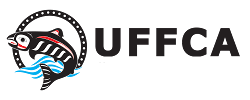UFFCA
Promotes and Encourages:
- Inclusive and transparent decision making regarding fisheries issues in the UFFCA area
- Stewardship of fisheries resources and sustainable harvesting practice
- Sustainability in fisheries management and practices
- Cultural values associated with ancient practices
The UFFCA provides advice and support services to UFFCA member communities on a range of issues from conservation and harvest planning and fisheries management, to environmental assessments and field science. The Alliance’s role is to support community based initiatives which support the overall strategic plan. The Alliance also assists with procuring resources for science and research while developing a continuous program of capacity development. The Alliance was created by 2005 under the Federal Department of Fisheries, Aboriginal Aquatic Resource & Oceans Management (AAROM) program.
 WHO WE ARE
WHO WE ARE




